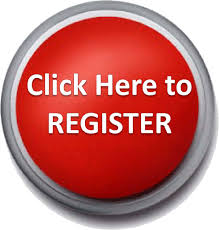Perceptual Audio Coding (PAC)
Workshop Date:
Mon, 06/13/2022 - Fri, 06/17/2022
Description: Did you ever you wonder how your MP3 files squeeze so much sound into such a small size? Or what is the difference between MP3 and AAC? Or which multichannel audio coding format you want to utilize? Perceptual audio coding is really a field at the cross road of many disciplines and one that flourished in the past 30 years by exploiting the advances in DSP and computer power to represent the audio signal in a compact and efficient way, by applying heuristic models and psychoacoustics data to identify irrelevant sound components, and ultimately by optimizing the distortion versus rate constraints, while filling a clear need for high-quality audio transmission/storage. Few of us would have guessed at the beginning that everyone would be clamoring for an MP3 or AAC device or dared hope the success that perceptual audio coding achieved through streaming, DVDs, high definition broadcast, telephony, etc.
This Workshop integrates digital signal processing, psychoacoustics, and programming to provide the basis for understanding and building perceptual audio coding systems. The first part of the workshop presents the basic principles underlying all the core components of a perceptual audio coding system. In the second part, design choices applied in state-of-the-art audio coding schemes, e.g. AC-3 (aka Dolby Digital); MPEG Layers I, II, and III (MP3); MPEG AAC; MPEG-H are presented. In-class demonstrations will allow students to hear the quality of state-of-the-art implementations at varying data rates and they will be programming their own simple perceptual audio coder during the workshop.
This workshop is intended for: Musicians/composers interested in exploring widely used digital audio technology; Engineers/computer scientists/product designers interested in exploring the principles and practices of audio coding standards; Anyone looking to know more about media technology used in our every-day lives.
Workshop structure: The workshop will consist of half-day lectures, half-day supervised lab sessions, and classroom exercises and discussions. In addition to addressing basic theory and implementations, classroom sessions will feature state-of-the-art audio coding demos. Participants are encouraged (but by no means required) to bring their own laptop computers. Knowledge of basic digital audio principles and programming experience is expected. The lab sessions will be carried out using Python -- a high level, easy-to-use programming language with syntax that will feel familiar to any programmer of C/C++, Java, or Visual Basic. (Prior Python programming experience is not required or expected.)
IMPORTANT NOTE: The instructors require the students to follow the textbook, Introduction to Digital Audio Coding and Standards, and read in preparation for the class. You can either purchase the book on your own, or add it to your registration and a copy will be purchased and waiting for you on the first day of instruction.
Marina Bosi, Richard E. Goldberg are co-authors of the book, Introduction to Digital Audio Coding and Standards. Dr. Bosi was part of the research team at Dolby Laboratories that developed AC-3. She also led the international multi-company effort that established MPEG AAC. At Stanford University, Dr. Bosi launched the first North American university course on perceptual audio coding and MP3 technology. A past-President and Fellow of the Audio Engineering Society, Marina has played key roles in the development of several standards for audio and video coding and for managing digital content, actively contributing to the work of numerous standardization bodies including MPEG, ATSC, and the DVD Forum.
This Workshop integrates digital signal processing, psychoacoustics, and programming to provide the basis for understanding and building perceptual audio coding systems. The first part of the workshop presents the basic principles underlying all the core components of a perceptual audio coding system. In the second part, design choices applied in state-of-the-art audio coding schemes, e.g. AC-3 (aka Dolby Digital); MPEG Layers I, II, and III (MP3); MPEG AAC; MPEG-H are presented. In-class demonstrations will allow students to hear the quality of state-of-the-art implementations at varying data rates and they will be programming their own simple perceptual audio coder during the workshop.
This workshop is intended for: Musicians/composers interested in exploring widely used digital audio technology; Engineers/computer scientists/product designers interested in exploring the principles and practices of audio coding standards; Anyone looking to know more about media technology used in our every-day lives.
Workshop structure: The workshop will consist of half-day lectures, half-day supervised lab sessions, and classroom exercises and discussions. In addition to addressing basic theory and implementations, classroom sessions will feature state-of-the-art audio coding demos. Participants are encouraged (but by no means required) to bring their own laptop computers. Knowledge of basic digital audio principles and programming experience is expected. The lab sessions will be carried out using Python -- a high level, easy-to-use programming language with syntax that will feel familiar to any programmer of C/C++, Java, or Visual Basic. (Prior Python programming experience is not required or expected.)
IMPORTANT NOTE: The instructors require the students to follow the textbook, Introduction to Digital Audio Coding and Standards, and read in preparation for the class. You can either purchase the book on your own, or add it to your registration and a copy will be purchased and waiting for you on the first day of instruction.
Marina Bosi, Richard E. Goldberg are co-authors of the book, Introduction to Digital Audio Coding and Standards. Dr. Bosi was part of the research team at Dolby Laboratories that developed AC-3. She also led the international multi-company effort that established MPEG AAC. At Stanford University, Dr. Bosi launched the first North American university course on perceptual audio coding and MP3 technology. A past-President and Fellow of the Audio Engineering Society, Marina has played key roles in the development of several standards for audio and video coding and for managing digital content, actively contributing to the work of numerous standardization bodies including MPEG, ATSC, and the DVD Forum.


